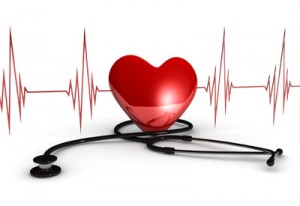Cardiovascular disease is the leading cause of death for both men and women in the U.S. It is important to learn about your heart to help prevent heart disease.
Heart disease is a another term used to describe various types of cardiovascular diseases. Heart diseases, such as coronary heart disease, heart attack, congestive heart failure, and congenital heart disease, are the leading cause of death.
Many of these diseases that affect the heart can be prevented or treated with healthy lifestyle choices. Symptoms vary, depending on what type of heart disease you have.
Cardiovascular disease is caused by narrowed, blocked or stiffened blood vessels that prevent your heart, brain or other parts of your body from receiving enough blood. Cardiovascular disease symptoms can include:
- Chest pain (angina)
- Shortness of breath
- Pain, numbness, weakness or coldness in your legs or arms
Types of cardiovascular disease
- Abnormal heart rhythms or arrhythmia
- Aorta disease
- Coronary artery disease – narrowing of the arteries
- Congenital heart disease
- Heart attack
- Heart failure
- Heart valve disease
- Heart muscle disease (cardiomyopathy)
- Pericardial disease
- Vascular disease (blood vessel disease)
You might not be diagnosed with cardiovascular disease until your condition worsens to the point that you have a heart attack, angina, stroke or heart failure. It’s important to keep an eye out for cardiovascular symptoms and discuss any concerns with your doctor. Heart disease can sometimes be found early with regular visits to your doctor.
Risk factors
- Age
- Gender
- Family history
- Smoking
- Diet
- High blood pressue
- High blood cholesterol levels
- Diabetes
- Obesity
- Physical inactivity
- Stress
- Poor hygiene
Contact your family physician if you think you may have heart disease or are worried about your risk because of strong family history. If heart disease is found early, your treatment may be easier and more effective. Ultimately, however, you may be referred to a heart specialist (cardiologist).




